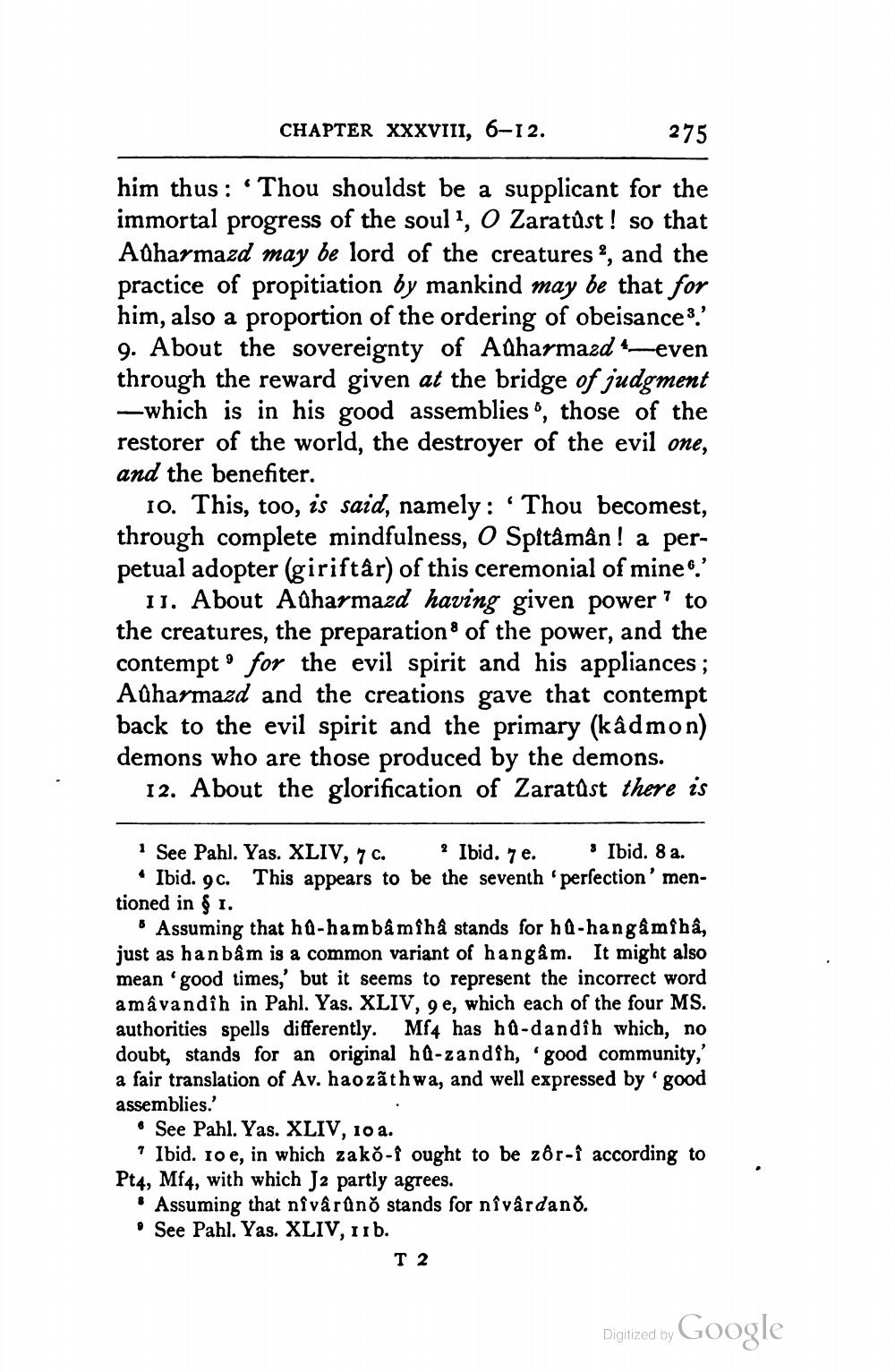________________
CHAPTER XXXVIII, 6–12.
275
him thus : 'Thou shouldst be a supplicant for the immortal progress of the soul, O Zaratûst ! so that Adharmazd may be lord of the creatures, and the practice of propitiation by mankind may be that for him, also a proportion of the ordering of obeisances.' 9. About the sovereignty of Adharmazd Seven through the reward given at the bridge of judgment —which is in his good assemblies', those of the restorer of the world, the destroyer of the evil one, and the benefiter.
10. This, too, is said, namely: “Thou becomest, through complete mindfulness, O Spitâmân! a perpetual adopter (giriftâr) of this ceremonial of mine.'
11. About Adharmazd having given power' to the creatures, the preparation of the power, and the contempt' for the evil spirit and his appliances ; Adharmazd and the creations gave that contempt back to the evil spirit and the primary (kâdmon) demons who are those produced by the demons.
12. About the glorification of Zaratust there is
1 See Pahl. Yas. XLIV, 7c. Ibid. 7. Ibid. 8 a.
• Ibid. 9c. This appears to be the seventh 'perfection' mentioned in $1.
Assuming that ha-hamba miha stands for ha-hangamiha, just as hanbam is a common variant of hangam. It might also mean 'good times,' but it seems to represent the incorrect word amavandîh in Pahl. Yas. XLIV, 9 e, which each of the four MS. authorities spells differently. Mf4 has hû-dandîh which, no doubt, stands for an original hQ-zandih, good community,' a fair translation of Av. haozãthwa, and well expressed by 'good assemblies.'
• See Pahl. Yas. XLIV, 10 a.
? Ibid. 10 e, in which zako- i ought to be zôr-î according to Pt4, Mf4, with which J2 partly agrees.
. Assuming that nîvârûno stands for nîvârdano. • See Pahl. Yas. XLIV, ub.
T2
Digitized by Google




